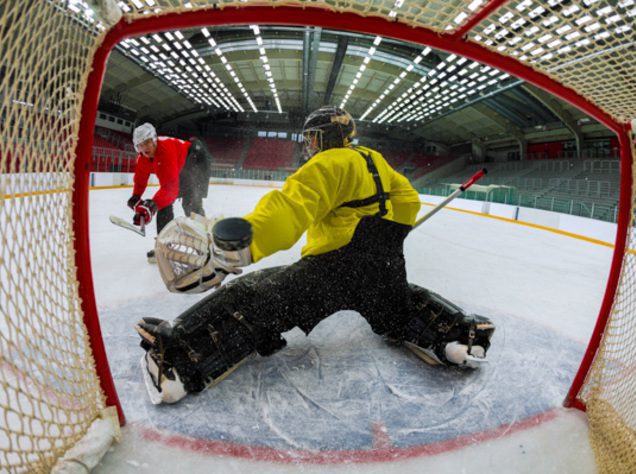Being A Mentally Tough Goaltender
In order to have success as a goaltender, you’ll need to accept that not every allowed goal is the end of the world. There are no perfect goalies and even the best make mistakes and let in goals that cost their team the game. Unfortunately, that is the nature of being a goalie. Most often, it’s one of the positions that receives all the praise for a team’s success, but all the blame for a team’s slump. CoachUp is here to help, however! We’ve compiled a list of tips to remember while in net so you can work towards being mentally tough in the future.

Short-Term Memory
There’s an old phrase that says, make the next save, not the last one. Once you’ve let up a goal, there’s nothing more you can do it about it. And the sooner you start concentrating and preparing for the next shot, the higher your chances are to make that save.
Be Your Own Coach
Finding ways to perform drills while mentally rattled can be a crucial, often-missed step for goaltenders. Concentrate on clearing your head and focusing on saving shots. Forget about your homework, troubles, and any other needless distractions — those can wait! In addition, try some pre-game visualization and imagine yourself making saves, controlling the rebounds, and having an incredible game — this will put you in the right frame of mind to perform at your highest level.
 Master The Emotions
Master The Emotions
For better or for worse, learning to control your emotions is key — never get too high, never get too low. Most times, tremendously great games are outliers and horrendously bad games are anomalies. Maybe you made 25 saves and shut them out, but three of their players missed easy shots, or you got a couple of beneficial deflections. And, on the flip side, you might give up four goals, but on two of them you were screened or your defender picked up an own goal. Treat those exponentially good and bad games for what they are and make sure you’re still mentally preparing the same way as always. Nobody knows what will happen the next time you’re out on the ice, so be ready for anything.
Furthermore, find out what works best for you! Some people prefer getting really jacked up and excited prior to a game, in an attempt to warm the brain up for activity and the frantic nature of the sport. But, for some, that’s the exact opposite; calm down, be as relaxed as possible, and clear your head. Figure out what kind of pre-game rituals work best for you. What works for others may not work for you, so find out what makes you most comfortable.
Remember, at the end of the day, nobody wants to lose. But any good teammate knows that the rise and fall of a squad doesn’t just rely directly upon the goaltender. So, if you’re feeling down and upset about a performance and loss, know that your teammates are probably just as emotional about theirs too. If you get angry with yourself and dwell on a mistake, it’ll only hinder your performance for the rest of the game or season.
(Related: Read about offsides and icing in hockey here.)
Huddle Up
Sometimes, you’ll see a goalie let in a cheap goal and mentally shut down, then they’re no longer sharp or forward-thinking. And, in the blink of an eye, the opposition suddenly score three more and a winnable 0-1 game has turned into the insurmountable 0-4 line. For many hockey players, if they screw up or cause a goal, they can retreat to the bench and sit until their mind is right, but goaltenders don’t have the ability to hide. After a goal is scored, that puck is dropping again in less than a minute and the opposing team could be back down your throat in seconds. Shake it off and be the best version of yourself as possible. CoachUp has plenty of private trainers that are willing to help you walk through feelings, emotions, and practices in person. For athletes that are just starting to learn hockey, especially those who want to be a goaltender, a private trainer could give you a boost over the competition.
How useful was this post?
Click on a star to rate it!
Average rating 3.3 / 5. Vote count: 3
No votes so far! Be the first to rate this post.



